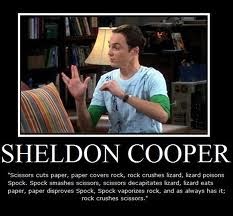Let me say for the record, here and now, that not only do I not agree, I disagree in the extreme. The CCSS are not responsible for the absence of creativity or rigor or divergent thought or mastery or any other quality one might find in a high quality classroom. The CCSS are standards--not techniques.
Let's use a fairly one-to-one analogy--building standards. In North Carolina, Chapter 15 of the building code, which deals solely with roofing, is fifteen pages long. It requires, among other things, that whatever you use to fasten the shingles to your roof has to extend at least 3/4" into the shingle. This is not unreasonable. In a high wind, loose shingles are a danger to the structural integrity of your home and the bodily safety of anyone wandering by.
That's just Chapter 15. There are no fewer than fourteen other chapters covering everything from sheet rock to plumbing to electrical systems.
Now, I'm going out on a limb and assume that most of you live indoors. Your home, be it ever so humble, probably conforms to these standards or something similar in a different state. I will further assume that few of you would credit or blame your home's aesthetic value on the building standards. You probably have some choice words for that contractor, though.
 Frankl Lloyd Wright, Mies Van de Rohe, Louis B. Sullivan--these men didn't revolutionize architecture by ignoring builidng codes. And good teachers should not find themselves hamstrung by learning standards that represent the minimum expectations for our children.
Frankl Lloyd Wright, Mies Van de Rohe, Louis B. Sullivan--these men didn't revolutionize architecture by ignoring builidng codes. And good teachers should not find themselves hamstrung by learning standards that represent the minimum expectations for our children.The standards are not the problem. The rampant ignorance of what the standards are--particularly by those leading their implementation--is a huge problem. I'm reminded of Cesar Milan, the Dog Whisperer, who asserted that there are no problem breeds, only problem owners.
The biggest problem that I have witnessed is a failure on the part of superintendents, curriculum directors, department chairs, and principals to READ the documents. I would be willing to bet my car--it's a 2011 Rav 4--that fewer than half of these people nationwide have read the entire document, including the appendixes, and fewer still have taken the time to understand the instructional implications of it.
I will go a step further and wager that implementation of the standards in most districts involved pulling up the old curriculum document, locating the CCSS that most closely resembled each standard listed in the old document, and doing a series of copies and pastes.
If that is in fact what has happened in most school districts, it should come as a surprise to no one that the process is not working. Note, please, that I didn't say, "The standards aren't working." Standards simply are. It is up to us to reach or exceed them, to use them to our benefit. They don't do anything.
I've been ranting rather generally for a while. Let's get into some specifics--say, writing.
FYI, I'm not ignoring the math standards; I just want to get a running start into them.
In the fourth grade, students should be able to "write opinion pieces . . . supporting a point of view with reasons and information," "convey ideas and information clearly," and "write narratives to develop real or imagined experiences."
Persuasive, expository, and narrative writing. Does anyone object so far?
Here's where the problem comes in. To write an effective persuasive piece, for example, requires that students must learn the differerence between a reason and a piece of evidence. The standards further require that they connect the ideas within their writing with transitional words and phrases. Most difficult, students must be exposed to ideas and topics about which they are encouraged to develop, express, and support opinions. This takes time. In fact, it takes the entire school year to gradually layer in that instruction and allow studentstime to practice and develop mastery.
What has unfortunately happened in too many schools is that each type of writing has been shunted into a single marking period. And in more than a few schools, all writing instruction is limited to language arts instructional time. This very new wine has been stuffed into dusty, old bottles.
This will not work, nor was it the intent of the consortium that developed the CCSS. The whole point of this endeavor was to have a common set of expectations. Local accents notwithstanding, are the skills needed to read and write effectively markedly different in North Carolina and Michigan? If a child moves from Lansing to Raleigh, should she have to repeat or skip a grade because the states' standards are so disparate?
I urge every teacher, parent, and interested citizen to read the standards for themselves. Read the appendixes and the introductions, too. That's where the intent behind the standards is found--and it's remarkably jargon-free.
Having informed yourself of what is in these documents, ask your child's principal how teachers have been supported in implementing the standards. Go to a school board meeting and ask the members and the Superintendent what they think about text complexity or performance assessments. If you hear crickets, you'll know where to direct your anger.
XOX,
The Know-it-All




